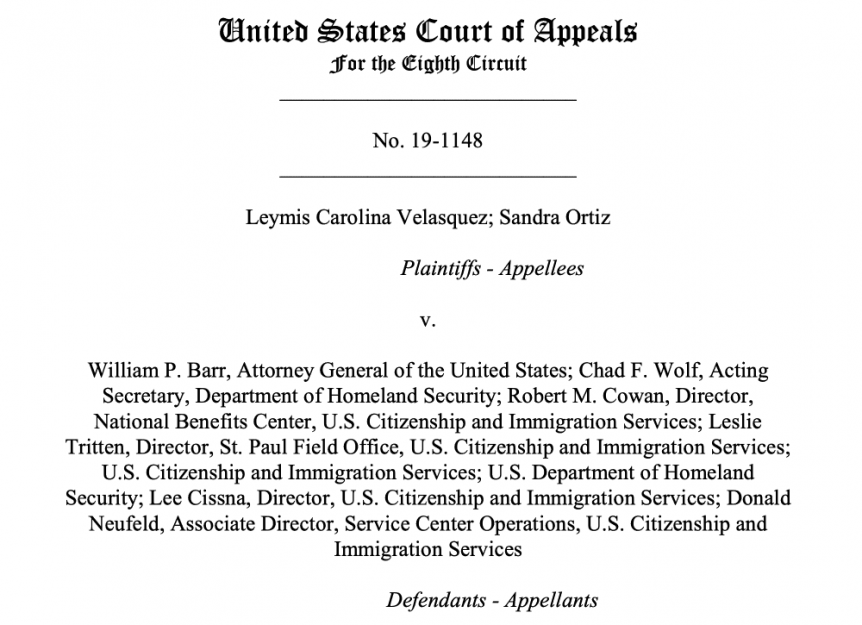The lawsuits, filed by a group of immigrants from Honduras and El Salvador, argued that when the federal government granted them TPS, even though they entered illegally only once, they legitimized their entry into the country.
If the federal government does not appeal the decision, it would mean that some TPS holders, who meet all the requirements, could apply for permanent residency within the country.
Who would qualify
Persons in TPS, including Salvadorans, Nicaraguans and Hondurans, living in states under the jurisdiction of the Federal Court of Appeals for the Eighth Circuit: Arkansas, North Dakota, South Dakota, Iowa, Minnesota, Missouri and Nebraska.
To obtain residency within the United States, an immigrant covered by TPS must:
* Be married to a U.S. citizen or
* Have U.S. children over 21 years of age
* Be admissible to the country and not have committed certain disqualifying acts, including having a criminal record or an order of deportation.
How to apply for permanent residency if you have TPS
U.S. spouses or children must file a family petition on behalf of the TPS immigrant along with an application for adjustment of status in order to process within the United States.
Government may appeal ruling
The federal government has 90 days to appeal the decision of the U.S. Court of Appeals for the Eighth Circuit.
If he appeals the decision, it is possible that the U.S. Supreme Court will accept the case, as two federal appeals courts have ruled that persons in TPS have not been inspected and admitted simply because they have obtained TPS.
If the Government does not appeal the decision, the ruling of the panel of judges remains law, allowing certain immigrants with TPS who are married to citizens, or who have citizen children over 21 years of age, and who live in the jurisdiction of the Federal Court of Appeals for the Eighth Circuit, to obtain permanent residency within the United States.
By not having to leave the country for consular processing, the unlawful presence bar would not be imposed. This law does not allow persons who have lived in the United States illegally for more than 180 days after April 1, 1997, to return to the country for a period of 3 or 10 years.
Background for and against people under TPS
Previously, the U.S. Court of Appeals for the Sixth Circuit had issued a similar decision protecting certain immigrants with TPS within its jurisdiction in the states of Kentucky, Michigan, Ohio and Tennessee.
Also, the U.S. Court of Appeals for the Ninth Circuit issued a similar decision that helps some immigrants with TPS within its jurisdiction in the states of Alaska, Arizona, California, Idaho, Montana, Nevada, Oregon and Washington.
However, the Federal Court of Appeals for the Third Circuit (Delaware, Virgin Islands, New Jersey, and Pennsylvania) and the Federal Court of Appeals for the Eleventh Circuit (Alabama, Florida, and Georgia) have ruled that individuals in the TPS no have been inspected and admitted upon receipt of TPS, and therefore, are not eligible to apply for permanent residence within the United States.
In addition, the Ninth Circuit Federal Court of Appeals for the Ninth Circuit ruled on September 14, 2020 that President Donald Trump's administration may end the humanitarian protections of TPS that have allowed hundreds of thousands of immigrants, impacted by natural disasters and civil wars, to live and work legally in the United States for the past 22 years.
Important recommendations
Persons under TPS who do not live in the jurisdiction of the Federal Courts of Appeals for the Sixth, Eighth and Ninth Circuits may move to these jurisdictions to apply for permanent residence if they meet the necessary requirements, including establishing that they are residents of the states covered by these federal courts.
Every person should consult with an immigration attorney before initiating any immigration proceedings or moving to another state to try to obtain immigration benefits.

